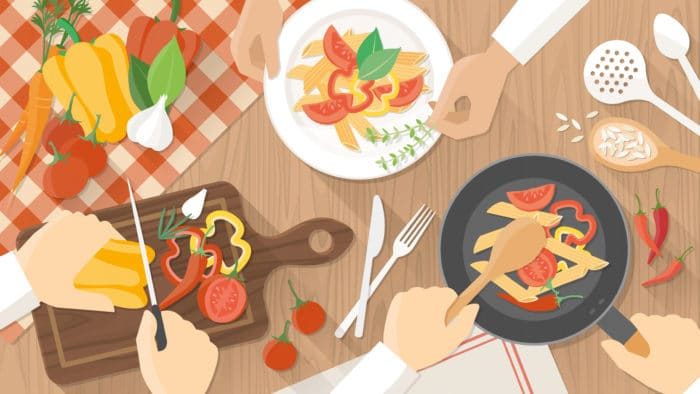Cooking is a blend of art and science, where a mastery of fundamental techniques can transform even the simplest ingredients into extraordinary dishes. Whether you’re a novice in the kitchen or a seasoned home cook, honing your skills in essential cooking techniques is a journey worth embarking on. In this article, we’ll explore some of these key techniques and provide tips to help you refine your culinary prowess.
1. Knife Skills: The Foundation of Every Meal
Knife skills are the cornerstone of cooking. A well-chopped onion, perfectly sliced tomatoes, or finely minced garlic can elevate your dishes. To master knife skills:
- Invest in a good quality chef’s knife and keep it sharp.
- Practice the claw grip to protect your fingers while cutting.
- Learn various cutting techniques like chopping, dicing, and julienning.
2. Sautéing: Building Flavor through Heat
Sautéing involves cooking food quickly in a small amount of oil or butter over high heat. This technique can enhance the flavor of vegetables, meat, and seafood. To sauté like a pro:
- Use a pan with a flat bottom and low sides to allow for even cooking.
- Cut ingredients into uniform sizes for consistent cooking.
- Don’t overcrowd the pan, as it can lead to steaming rather than sautéing.
3. Roasting: Unlocking Deep Flavors
Roasting is ideal for bringing out the natural sweetness in vegetables and meats. To achieve perfect roasts:
- Preheat your oven and use a roasting pan.
- Season ingredients with herbs, spices, and oil for enhanced flavor.
- Monitor cooking times and temperatures for the desired level of doneness.
4. Grilling: Adding a Smoky Touch
Grilling imparts a unique smoky flavor and attractive grill marks. To become a grill master:
- Preheat the grill for even cooking.
- Oil the grates to prevent sticking.
- Practice the art of indirect and direct grilling for different foods.
5. Poaching: Gentle Cooking for Delicate Items
Poaching is a gentle cooking method suitable for delicate items like eggs, fish, and fruits. Here’s how to poach perfectly:
- Use a flavored poaching liquid, such as broth or wine, to enhance the taste.
- Maintain a low, simmering temperature and avoid boiling.
- Invest in a poaching pan with shallow sides for easy access.
6. Braising: Creating Comfort Food Classics
Braising involves slow-cooking in liquid, which tenderizes tough cuts of meat and infuses rich flavors. To master braising:
- Brown the meat before adding liquid to build a flavorful base.
- Choose a heavy, lidded pot to retain moisture and heat.
- Cook at a low, steady simmer.
7. Emulsification: Crafting Perfect Sauces
Emulsification is the technique behind smooth and creamy sauces like mayonnaise and hollandaise. To create flawless emulsions:
- Combine two immiscible liquids (like oil and vinegar) with an emulsifying agent (such as egg yolk or mustard).
- Add the liquids gradually, whisking constantly.
8. Baking: The Science of Sweet and Savory Delights
Baking requires precise measurements and adherence to recipes. To excel in baking:
- Invest in quality bakeware.
- Use room-temperature ingredients for even mixing.
- Understand the science behind leavening agents like baking powder and yeast.
9. Seasoning and Tasting: The Chef’s Palate
Mastering the art of seasoning and tasting is perhaps the most crucial technique. Here’s how to do it right:
- Season your dishes in layers, adding salt, pepper, and other seasonings throughout the cooking process.
- Taste as you go and adjust as needed. Trust your palate.
10. Plating: Elevating the Dining Experience
Plating is where your dishes come to life visually. To plate like a pro:
- Consider balance, color, and texture when arranging food.
- Use garnishes like fresh herbs or edible flowers for an elegant touch.

Remember, mastering essential cooking techniques is a lifelong journey. Each dish you prepare, each technique you refine, brings you one step closer to culinary excellence. Don’t be afraid to experiment, and let your passion for cooking guide you to new heights in the kitchen. Happy cooking!



